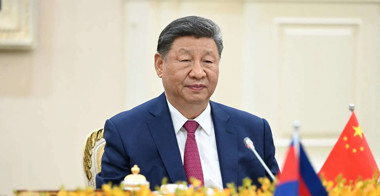India’s electric vehicle (EV) sector, poised for significant growth, faces a critical challenge: securing a stable supply of rare earth elements (REEs). These materials are essential for manufacturing EV batteries and motors. However, China’s tightening grip on global REE exports has raised concerns about potential disruptions in India’s EV production and broader industrial capabilities.
China’s Dominance in the Rare Earth Market
China controls approximately 90% of global REE processing and over 70% of mining activities. This dominance allows China to exert significant influence over the supply chain, impacting industries worldwide, including India’s burgeoning EV market. In April 2025, China implemented stricter export regulations, requiring end-user certificates for REE shipments. This move has further complicated India’s access to these critical materials.
India’s Dependence on Imported Rare Earths
Despite possessing around 6% of the world’s REE reserves, India contributes only about 1% of global output. The country relies heavily on imports—particularly from China—to meet its REE demands. This dependency makes India’s EV industry vulnerable to supply chain shocks and price volatility, especially amid shifting global trade dynamics.
Impact on the EV Industry
The scarcity of REEs has already begun to affect Indian EV manufacturers. Companies like Tata Motors have responded by reducing the use of rare earth materials in their vehicle motors. For instance, Tata Motors decreased the rare earth content in its Nexon EV’s motor by 30% in a bid to mitigate risks and reduce dependency on Chinese imports. However, such steps may not be sustainable as EV demand continues to grow and performance standards remain high.
Government Initiatives to Strengthen Domestic Capabilities
Recognizing the strategic importance of rare earths, the Indian government has initiated several measures to boost domestic production and reduce reliance on imports:
-
National Critical Minerals Mission (2024): Focuses on enhancing mining and refining capabilities for critical minerals, including REEs.
-
Policy Reforms: Amendments to the Mines and Minerals (Development and Regulation) Act now allow private sector involvement in the exploration and mining of rare earths.
-
Global Collaborations: India has forged partnerships with countries like Australia to co-invest in rare earths mining and processing, thereby diversifying its supply sources.
The Path Forward
To ensure a resilient and self-reliant EV industry, India must take a multi-pronged approach:
-
Expand Domestic Production: Invest in the exploration and processing infrastructure necessary to tap into India’s own rare earth reserves.
-
Develop Recycling Capabilities: Implement robust recycling systems to recover REEs from end-of-life electronics and batteries.
-
Promote R&D: Encourage innovation in alternative materials and magnet technologies that reduce or eliminate the need for rare earths.
-
Create Strategic Reserves: Establish buffer stocks of critical minerals to cushion against future supply shocks.

